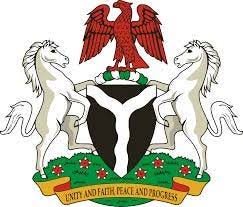”FEC approved N13 billion for compensation under the Lagos Transmission Industrial Project, backed by a $238 million loan from the Japan International Cooperation Agency (JICA).
“The request submitted was approval for the sum of 13 billion naira for the Lagos trans industrial of transmission project which is being funded through a $230 million development loan from Japanese International Cooperation Agency jaika.
“This project, when completed, will not only improve capacity and credibility of power supply along the industrial axis of Lagos Ogun, it will also be good news for industrial development and ensure that industries around that axis enjoy improved supply.”
The minister said the project will boost electricity to industrial corridors in Lagos and Ogun States, ensuring manufacturers receive stable power supply.
“This funding covers compensation to property owners and communities affected by the transmission lines’ route.”
“Once completed, the Lagos Industrial Transmission Project will ensure that our industrial estates have the dedicated, stable power they need to drive economic growth and create jobs,” the minister said.
Adelabu said the project supports the government’s vision to “use what we produce and produce what we use” by powering local industries and reducing reliance on imports.
He stressed that stable electricity is vital for industrialisation, job creation, and sustainable economic development.
He added that the remaining three approved proposals relate to the procurement of new power transformers to upgrade the aging national grid.
“The other three papers were actually in respect of approval for procurement of various grids of power transformers to replace weak and dilapidated ones across the national grid.
“If this is done, it will not only enhance power supply, but to also relieve overloaded power transformers that is operating across the national grid, and this will also enable us to cope with the increased wheeling capacity of the national grid.”
He noted that much of the national grid is over 50 years old and struggles with frequent overloads and equipment failures.
“Many of the transformers, cables and related components are weak and prone to failure. Regular maintenance and timely replacement are essential if we are to achieve a stable, reliable and effective grid that meets the needs of households, offices, small businesses and industries.”
To address this, he said FEC approved the purchase of 14 high-capacity transformers costing $34 million, plus an additional N5.2 billion.
“The new transformers include two 150MVA 330/132/33kV units, five 100MVA 132/33kV units, five 60MVA 132/33kV units, and two 30MVA 132/33kV units.”
The minister said the upgrades will ease pressure on overstretched sections of the grid and improve system efficiency.
He added that enhanced transformer capacity will help the grid support increased electricity generation and wheeling capabilities.
He emphasised the need for continuous maintenance and modernization to avoid breakdowns and ensure uninterrupted supply.
Adelabu assured Nigerians of improved electricity access across homes, offices, small businesses, and industries.
The minister described the development as “good news for Nigerians,” saying reliable power is essential for growth and competitiveness.
He reaffirmed the government’s commitment to ensuring that the power sector reforms translate into tangible improvements in the daily lives of citizens.
FEC approves major funding for Nigeria’s power sector transformation



